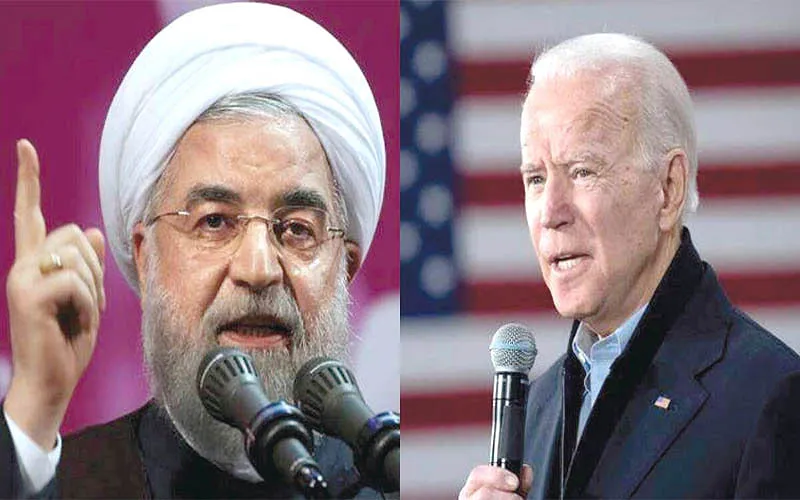The newly elected American president, Joe Biden, devoted much of his inaugural speech to national unity. No doubt this is an important task for the president to address the systemic racism and overcome the consequences of the ongoing pandemic which has not only led to four lakh deaths in America but has also brought economic and social devastation in the country and across the globe. Apart from this and other equally important issues like mending strained relationship with Europe and addressing the issue of worsening climate change, it would be very interesting to see if Joe Biden shows the political will to negotiate differences with Iran without further complicating the matter.
During election campaign in 2020 he often exhibited willingness to reengage with the world which he again reiterated in his inaugural speech on January 20, 2021 by emphasizing that there is much to restore and rebuild. Though Biden promised to move “forward with speed and urgency” but it is still hard to guess how he will address the political quagmire involving Iran.
Iran’s foreign minister Javad Zarif has already hinted in his Foreign Affairs article on January 22 that better choice for Joe Biden is to bury Trump’s legacy and the policy of “maximum pressure” and instead unconditionally return to the Deal that Trump abandoned on May 8, 2018. Zarif went on to say that Iran will reciprocate fully and positively as the deal demands. Interestingly Zarif also asserted in his tweet on January 26, most probably in response to Biden’s nominee for secretary of state, Antony Blinken, that it is not Iran that has to show goodwill gesture first rather onus lies on US which must “remedy its wrong; then Iran will respond.”
The Iran Nuclear deal or the Joint Comprehensive Plan of Action (JCPOA) was an agreement signed by Iran and six other countries including five permanent members of UN Security Council and Germany in July 2015 after two years of rigorous and grueling negotiations. The deal was endorsed by UN Security Council Resolution in the same month making it binding international legal framework. Iran completely accepted the JCPOA framework and agreed to reduce Uranium stockpile by 98% till 2031. In addition to this, Iran also agreed to bring down the number of centrifuges to just 5000 least efficient centrifuges at Natanz till 2026 and convert the Fordo site into Nuclear Physics and Technology Centre where only around 1000 centrifuges will produce radio isotopes for medicinal use. This all was actually meant to increase the “breakout time” to one year which in 2015 was probably 2-3 months. In return Iran got timely relief from crippling sanctions and access to 100$ billion assets frozen overseas.
The Deal was rightly hailed as multilateral diplomatic achievement but later the American president Donald Trump dubbed JCPOA as “the worst deal ever”. Fulfilling his campaign promise he unilaterally withdrew from the Deal in May 2018 and then started what Zarif calls “blunt economic warfare” against Iran. The other signatories of the Deal “regretted” the decision and in a joint statement Macron, Angela Merkel and Theresa May noted that Trump’s decision is in complete violation of the UN Security Council resolution.
Now Joe Biden has an important decision to make. He can either respect the Deal by lifting the sanctions that Trump administration imposed on Iran or complicate it more by demanding the expansion of the Deal beyond nuclear issues. It seems that Biden administration is mulling to further complicate the issue. The White House press secretary Jen Psaki in her very first press briefing clearly signaled that there are “other issues of concern” that Biden might try to address with Iran. So, in all likelihood America might demand suspension of Iran’s ballistic missile program and may ask Iran to withdraw support to its regional allies who are opposed to US interests.
Given the revisionist intentions of America and its involvement in the region, Iran cannot afford to give up its defence program. The American policy has always been to “contain” Iran which is a potential great power in the region. To prevent Iran from gaining any kind of supremacy in the region, the United States as an “offshore balancer” is continuously funding and militarily supporting Iran’s archrivals like Israel, UAE and Saudi Arabia. As part of USA’s grand strategy of offshore balancing, UAE, a country with population not more than 98 lakh, has around 23$ billion defence budget. Ironically, the recent data of Stockholm International Peace Research Institute (SIPRI) revealed that the flow of arms to the middle east has increased in recent years with Saudi Arabia as the world’s largest arms importer.
In the face of such tangible military threat in the region Iran will always think about its survival first and will never give in to the demands of a country which tends to have zero-sum mentality in all negotiations involving Iran. Iran has no choice but to think strategically about its own interests because in the end “it pays to be selfish in a self-help world”. Making Iran’s position clear, the supreme leader Ayatullah Khamenie categorically said in his speech on November 24, 2020 that countries possessing destructive nuclear missiles have no right to point a finger at Iran’s conventional missile program. Iran as a rational actor has to thinks strategically to deal with the challenges that it is facing. Pertinent to mention that Iran’s position has hardened after the assassination of Quds force commander, Gen. Qasim Suliemani and top nuclear scientist Mohsen Fakhrizadeh. So any attempt by America and European countries to ask for inclusion of “other issues of concern” in the Deal is doomed to fail.
Manzoor Ahmad is Doctoral Candidate, International Studies, Jamia Millia Islamia






